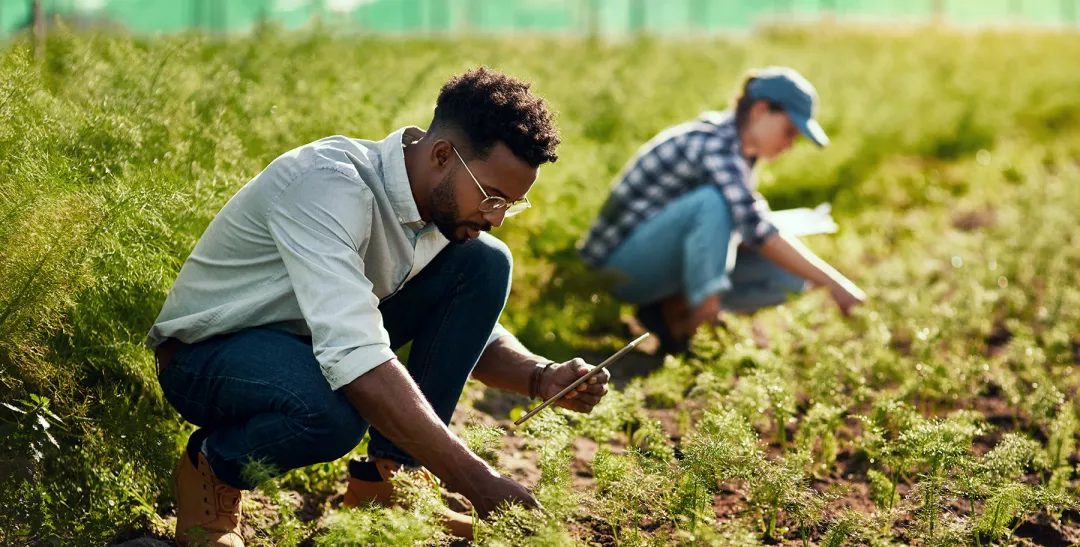Inspirational idea: Sustainable biorefineries based on agricultural residues
The international AgriLoop project develops processes to create innovative high-value products from agricultural waste through sustainable supply chains.

AgriLoop is an international project to boost circular agriculture in Europe and China. It will develop and share new ways of converting agricultural residues into bio-products to create economic, social and environmental opportunities for the agricultural sector. 35 partners across Europe and China joined forces in 2022 as part of AgriLoop with the common goal of increasing agricultural sustainability, supporting the bioeconomy, and tackling the issues of climate change and plastic pollution. Professor Nathalie Gontard, AgriLoop European Project Coordinator (INRAE), explains “Our aim is to eco-efficiently convert underexploited agricultural residues into high added-value bio-products able to generate new bio-based markets or to compete with, and gain market share of, oil- and food crops-based equivalents. The eco-friendly products include food and feed ingredients and bio-based materials.”
The project sees unused crop residues as an underexploited resource which can be put to better use. By using this ‘waste’ as a feedstock for the bioeconomy, not only can it be converted into something useful, but also can actually replace oil-based products. AgriLoop will therefore contribute to increasing resource efficiency and moving away from dependence on fossil fuels. Furthermore, the products aim to be greener in production, compostable and biodegradable. For farmers, AgriLoop is providing potential new, high-value uses for agricultural residues. It uses these residues to provide sustainable end-products, including products for agricultural markets, such as mulching films, horticultural pots, feeds and fertilisers.
The AgriLoop partnership, which includes research and technical organisations, small to medium-size companies and larger organisations, will develop a concept for sustainable biorefineries and demonstrate innovative and sustainable value chains. These biorefineries use agricultural residues from tomato, soybean, peanut, apple, straw, potato, brewery grains, oil, grapes and manure. The waste is transformed into plant and microbial proteins, polyesters, and other bio-based chemicals. The processes include green extraction, microbial conversion and material compounding and extrusion. Any remaining biomass is used to generate biogas. AgriLoop’s "safe-and-sustainable-by-design" approach minimises harmful impacts on the environment and is designed to be capable of being scaled up for use in commercial biorefineries.
The outcomes of the processing can be converted into a range of innovative bio-based products and processes for food, feed, health and material applications, particularly for the agricultural sector. These include food and feed ingredients (plant proteins, carotenoids), highly functional biochemicals (antioxidants, antimicrobials), microbial proteins, bio-based materials such as plant polyesters (cutin, suberin) and microbial polyesters (PHA), and fertilisers. Professor Aimin Shi, the Chinese Project Coordinator (IFST-CAAS) explains “The functionality and value of these frugally designed bio-based products will be tested by end users, including farmers and bio-processors. There is an emphasis on products for agriculture and food, creating a fully circular solution.”
Through the creation of flexible, agri-based value chains, AgriLoop also aims to help open new markets, create new jobs and increase economic competitiveness in the sector.
More information
The AgriLoop project has received funding from the European Union’s Horizon Europe research and innovation programme under the grant agreement No. 101081776, the UK Research and Innovation (UKRI) fund under the UK government’s Horizon Europe funding guarantee, the Swiss State Secretariat for Education, Research and Innovation (SERI), and from the National Key Research and Development Program of China (NKRDPC). Views and opinions expressed are however those of the author(s) only and do not necessarily reflect those of any of the aforementioned funding authorities. Neither the European Union, the United Kingdom, the Swiss Confederation, or the People’s Republic of China, nor the European Commission, UKRI, SERI or NKRDPC can be held responsible for them.
Are you interested in the bioeconomy? Follow the progress of the EU CAP Network cross-visit ‘Use of agricultural and forestry residues for creating alternative sources of income for farmers and foresters’, which will take place on Wednesday 26 - Thursday 27 June 2024.
